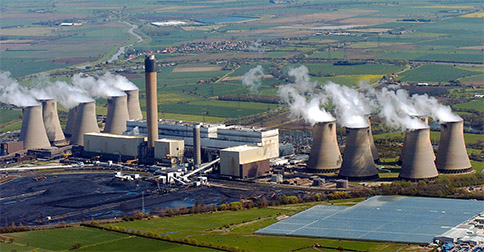It is fair to say that biomass has garnered a lot more momentum overseas than it has domestically.
But one political development in the United Kingdom could spell a downturn for biomass in that country, one that could be echoed in the United States should similar circumstances occur.
Six months ago, the Conservatives took control of Parliament and, thus, the government of the UK. As one plank in their platform, the Conservatives made it known that they would take a hard look at biomass funding – and have announced cuts to funds allocated to increasing the renewable energy sector.
Could UK Biomass Wither Away?
Conservative leadership in the UK has traditionally supported fracking and nuclear development, and have opposed the far-reaching developments and investments the UK has made in biomass production.
The problem with this stance from an industry perspective is that biomass is still a young industry. It requires extensive investment from government in order to be as viable as it needs to be (even though biomass has proven to be sustainable in many European nations and even in the United States).
Biomass has been viewed by many as a key to the UK’s energy future. Indeed, three of the six power generating units at Drax, the largest power station in western Europe, have been converted to biomass production. (Drax generates seven percent of the electricity used in the UK.) According to ministers in government, Drax has achieved 80 percent savings relative to coal transport and has seen success with its biomass conversion.
All of that could be in jeopardy, however, should extensive cuts to biomass production in the UK be realized.
Drawing a Parallel to the US Biomass Industry
The biomass industry in the US isn’t nearly as advanced as it is in Europe. Biomass isn’t as widespread, nor have biomass plants been operating as long as they have been in Europe.
This creates an even more precarious situation should political winds blow similarly in the United States. With the election coming up in 2016, the future of the young domestic biomass industry could be in play, although it must be stated that advancing biomass, so far, has largely been a bipartisan effort in Congress (namely due to biomass’s widespread potential to impact domestic energy production throughout the country, as opposed to just a few isolated regions).
Nevertheless, biomass proponents will inevitably view the upcoming elections with interest. We won’t really know how it all shakes out for biomass until the new Congress and new administration is installed in the first month of 2017.


